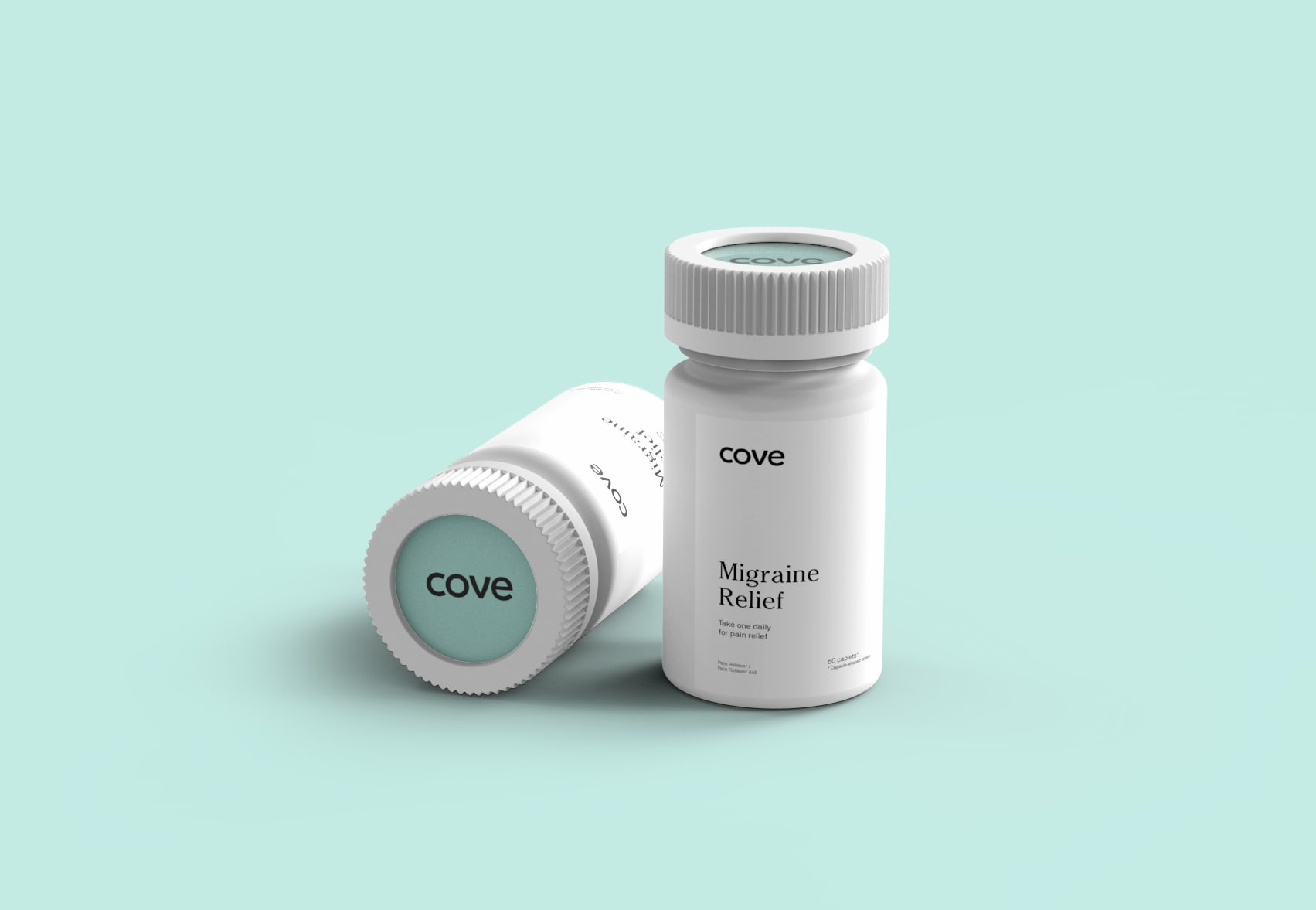When you realize you have migraine headaches, a million questions run through your head, like “Is there a cure?” or “Why me?” And as you start to get used to living with the attacks, you learn that the better you understand your condition, the better prepared you’ll be to treat it.
We know how important it is to know everything you can about how to take control of your migraine, so we put together this guide to the essential facts every migraine sufferer should know. We asked our medical advisors to weigh in too so you’ll have an expert’s perspective. That way, you’ll have all the information you need to find the right migraine treatment for your needs (if you just want to skip to that step, we’re here for you).
Ready to learn something new?
What exactly is migraine?
“Migraine is a very common disorder. 12% of the general population suffers from them. 18% of women get them.” - Dr. Philip Bain, migraine expert and Cove medical advisor
If the answer that comes to mind is “bad headache,” these articles are for you. If you’re going to successfully treat your condition (and you are!), it’s helpful to better understand what you’re dealing with first.
- What Are Migraine Symptoms?
- What's the Difference Between a Migraine Headache and Other Headaches?
- How Do I Know if I Have a Sinus Headache or Migraine?
- What Exactly Is Migraine With Aura?
What causes migraine headaches?
“Keeping a headache diary, while sometimes annoying, can really help guide treatment. I ask female patients to track their periods too, to help determine if they're experiencing menstrual migraine, which can be addressed separately.” - Dr. Sara Crystal, migraine expert and Cove Medical Director
When you get debilitating headaches, it’s reasonable to wonder why this is happening to you. These articles will help you start to understand what’s causing your attacks.
- What Causes Migraine?
- What's the Right Way to Track My Migraine?
- The Ultimate Guide to Foods That Trigger Migraine Attacks
- How to Avoid Migraine Triggers While Wearing Your Mask
What acute medications can I use to relieve migraine symptoms?
“The earlier one treats a migraine attack, the more likely it is to respond to medication, so I don’t recommend waiting to treat.” - Dr. Sara Crystal, migraine expert and Cove Medical Director
Unfortunately, no matter how well you know and avoid your triggers, migraine attacks will likely keep happening. Read up on your options for prescription and over-the-counter medication to make sure you’ll be prepared when they do.
- Everything You Need to Know About Triptans for Migraine Treatment
- Everything You Need to Know About NSAIDs for Migraine Treatment
- Everything You Need to Know About Anti-Nausea Medication for Migraine Treatment
- Everything You Need to Know About Anti-CGRP Migraine Treatment
- What to Know About Treating Migraine With Nasal Sprays
What preventive medications can make my attacks less frequent?
“A good rule of thumb is that if you’re having to use your acute medication more than two days a week, you should speak to your doctor to see if a preventive strategy is right for you.” - Dr. Philip Bain, migraine expert and Cove medical advisor
Preventive medications, like the ones covered in these articles, make migraine attacks happen less often over time. Not every migraine sufferer needs a preventive treatment—if your attacks are pretty rare and you can treat them with acute medication, there’s probably no need to add another medication to your pill box. But if you find yourself reaching for your acute treatments more than twice a week, read these guides.
- What to Know About Antidepressants for Migraine Prevention
- Everything You Need to Know About Anticonvulsants for Migraine Treatment
- Forget Wrinkles: Here's How Botox® Treats Migraine
- Everything You Need to Know About Beta Blockers for Migraine Treatment
What natural remedies can help me treat this?
“Butterbur is a natural product shown to be effective for migraine prevention, but it contains a compound that can cause liver toxicity, so it’s very important to use a reliable brand that properly extracts the dangerous compound.” - Dr. Sara Crystal, migraine expert and Cove Medical Director
You can’t research migraine treatments without running into people who swear their attacks were cured by a home remedy, but, as Dr. Crystal explains above, “natural” doesn’t always mean “safe.” Before you dive into any alternative treatments, read these articles for guidance on what might work and what to avoid.
- The Best Migraine Home Remedies, According to Research
- Alternative Migraine Treatments: What's Real, What's Not, and What You Should Know
- The Best Remedies for Migraine Nausea (Because It's Not Always Medication)
- Everything You Need to Know About Treating Migraine With Supplements
- Everything You Should Know About Magnesium for Migraine Prevention
- Everything You Should Know About Riboflavin for Migraine Prevention
- What You Should Know About CoQ10 for Migraine Prevention
What else can I do to feel better?
“I explain to patients that improvement is a gradual process—your migraine didn’t begin overnight and it likely won’t be fixed overnight either.” - Dr. Sara Crystal, migraine expert and Cove Medical Director
While it’s always a good idea to have effective medication on hand, treating your condition is going to take more than just medication. To really maximize your headache-free days, you may need to make some changes to your lifestyle that’ll make attacks less likely to happen.
- Let's Break Down the Science Behind a Healthy Migraine Diet
- The Best Stress Management Tips for Migraine Sufferers
- Let's Discuss the Relationship Between Exercise and Migraine
- How to Get Active Without Triggering Migraine Attacks
- Yes, Yoga Can Help Treat Your Migraine Headaches
- The Answer to "What Does Sex Have to Do With Migraine Headaches?"
- The Relationship Between Your Migraine, Your Period, and Birth Control
- Should Migraine Sufferers Track Their Sleep?
- What to Keep in a Migraine Kit
No matter where you are in your migraine journey, we hope this guide will help you learn more about your condition. Understanding your specific triggers and treatment options is the first step toward taking control of your migraine. That’s right—when it comes to migraine, knowledge really is power.
Disclaimer
The information provided in this article is not a substitute for professional medical advice, diagnosis, or treatment. You should not rely upon the content provided in this article for specific medical advice. If you have any questions or concerns, please talk to your doctor.
The information provided in this article is not a substitute for professional medical advice, diagnosis, or treatment. You should not rely upon the content provided in this article for specific medical advice. If you have any questions or concerns, please talk to your doctor.



